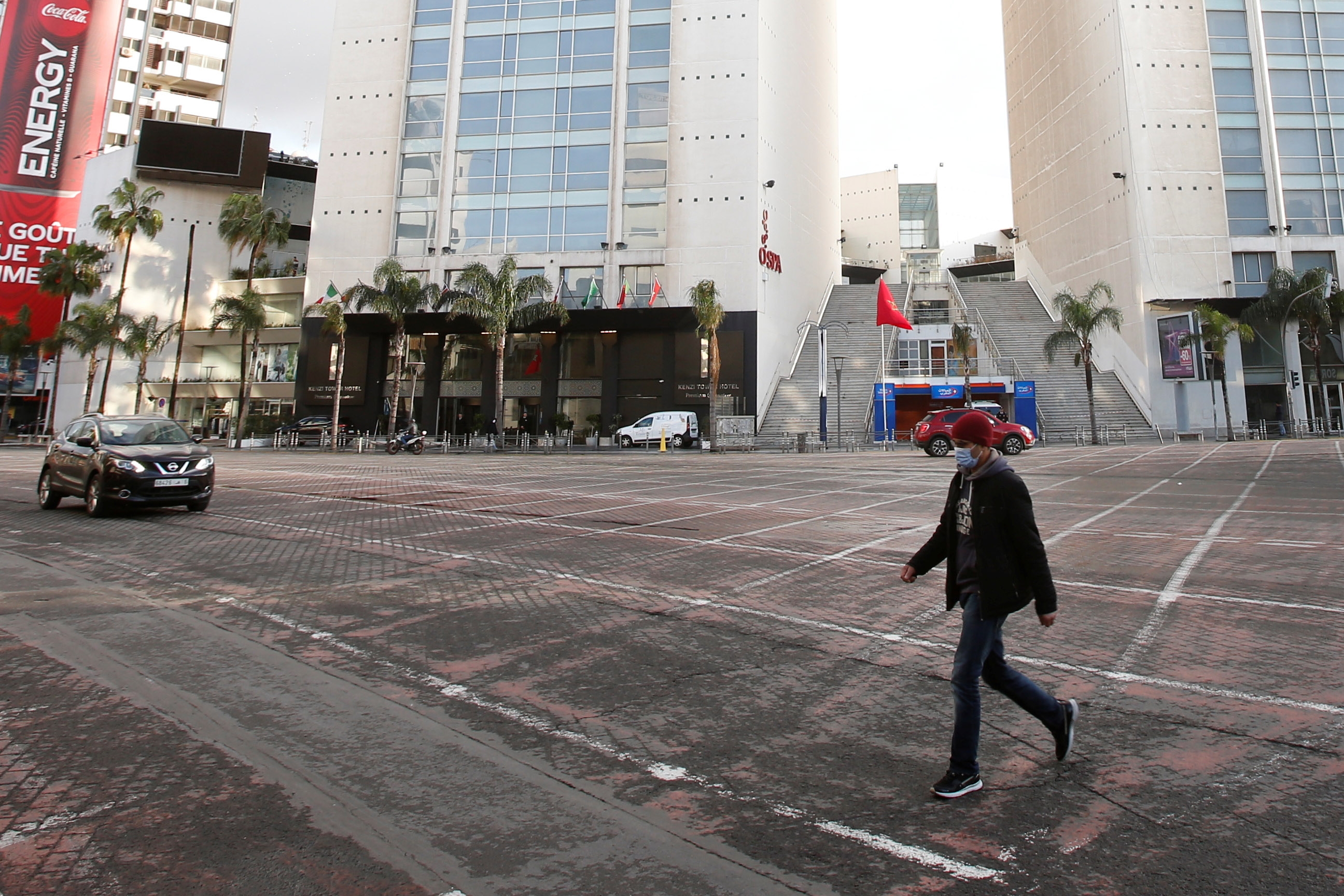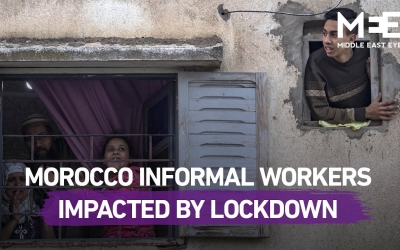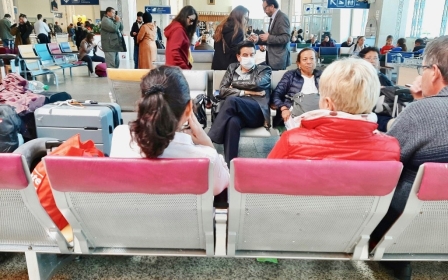Coronavirus: Moroccans who don't wear face masks in public risk jail time

Moroccans who leave their homes without wearing face masks risk prison sentences of up to three months and a fine of up to $126 (£102), the government has said, under a new law designed to curb the spread of the coronavirus.
The new order took effect on Tuesday after the country announced 1,120 people had contracted Covid-19 and 80 people had died from the disease.
Authorities said the face masks would be sold at the subsidised price of $0.08 each in order maximise the number of people who have access to them.
Taofiq Moucharrraf, a spokesman for the industry ministry, said the country planned to produce nearly six million face masks per day, which is almost double its current amount of 3.3 million.
Tuesday's decision comes after an official report, quoted by the Le Figaro newspaper, said that 8,600 Moroccans had been arrested and prosecuted for flouting lockdown rules which came into effect on 19 March.
Under the strict rules, people can only leave their homes to buy essentials such as food or medicine, and only those with permits can go to work.
In an attempt to help prevent a potential outbreak in the country's overcrowded prisons, Morocco's King Mohammed VI pardoned 5,654 prisoners on Sunday.
The freed individuals were selected based on their age, health, good conduct and length of detention.
The king also ordered authorities to take "all the necessary measures to reinforce the protection of detainees in prisons". Morocco has an estimated 232 prisoners per 100,000 people.
Still, rights groups have urged authorities to release all political prisoners, including those held in preventive detention or nearing the end of the terms, due to the pandemic which has infected more than 1.3 million people worldwide.
Middle East Eye delivers independent and unrivalled coverage and analysis of the Middle East, North Africa and beyond. To learn more about republishing this content and the associated fees, please fill out this form. More about MEE can be found here.





